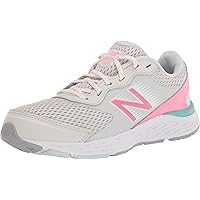Staying properly hydrated is essential for overall health, but did you know it can also help you lose weight? Drinking enough water can boost your metabolism, reduce hunger, and even improve exercise performance. By incorporating water into your weight loss routine, you can shed pounds more efficiently while staying healthy and energized.
Why Hydration is Important for Weight Loss
Water plays a vital role in many of the body’s processes, including digestion, nutrient absorption, and metabolism. When you’re dehydrated, your body can’t function optimally, which can hinder weight loss. Here’s how proper hydration helps with shedding pounds:
- Boosts Metabolism
- Drinking water can temporarily increase your metabolism, meaning your body burns more calories at rest. Studies have shown that drinking 500 ml (about 17 oz) of water can increase metabolic rate by 30% for up to 40 minutes .
- This metabolic boost, known as water-induced thermogenesis, can help you burn extra calories throughout the day.
- Suppresses Appetite
- Drinking water before meals can help you feel fuller, reducing your calorie intake. One study found that people who drank water before meals ate 75–90 fewer calories per meal .
- Often, feelings of hunger can be mistaken for thirst, leading to overeating. Staying hydrated helps you distinguish between actual hunger and thirst.
- Reduces Caloric Intake
- Replacing sugary drinks like soda or juice with water can significantly reduce your calorie intake. A single 12-ounce can of soda contains about 140 calories and 39 grams of sugar. By switching to water, you cut out these empty calories and reduce your sugar intake.
- Drinking water instead of calorie-rich beverages also helps prevent liquid calories from contributing to weight gain, as many people underestimate the impact of these beverages on their daily calorie consumption.
- Improves Exercise Performance
- Proper hydration is key to maintaining physical performance. Water helps transport nutrients to cells, lubricates joints, and regulates body temperature, allowing you to work out more effectively and burn more calories.
- Dehydration can lead to fatigue and reduce your endurance, making it harder to engage in physical activity. Drinking water before, during, and after exercise ensures you stay energized and perform at your best.
- Supports Fat Breakdown
- Water is essential for the process of lipolysis, which is the breakdown of fat cells for energy. Without sufficient water, your body cannot metabolize stored fat effectively.
- Hydration helps flush out waste products and toxins that are released when fat is burned, aiding in the fat loss process.
How Much Water Should You Drink for Weight Loss?
The amount of water you need depends on various factors, including your age, weight, activity level, and climate. However, a general recommendation is to drink at least 8 cups (64 oz) of water per day, also known as the “8×8 rule.”
For more personalized hydration:
- Drink ½ your body weight in ounces. For example, if you weigh 150 lbs, aim for at least 75 oz of water daily.
- Increase your water intake if you exercise, live in a hot climate, or consume caffeine or alcohol (both of which are dehydrating).
Tips for Staying Hydrated Throughout the Day
- Drink a Glass of Water in the Morning
- Start your day by drinking a glass of water as soon as you wake up. This jumpstarts your metabolism, hydrates your body after a night’s sleep, and helps flush out toxins.
- Carry a Water Bottle
- Keeping a water bottle with you throughout the day ensures you have easy access to water and serves as a reminder to drink regularly.
- Opt for a reusable water bottle to reduce waste and track your intake.
- Drink Water Before Meals
- Drink a glass of water 20–30 minutes before meals to help control your appetite and prevent overeating. This can also aid digestion.
- Flavor Your Water
- If plain water gets boring, add natural flavors like lemon, cucumber, mint, or berries to make it more enjoyable without adding sugar or calories.
- Eat Water-Rich Foods
- Many fruits and vegetables have high water content, such as cucumbers, watermelon, strawberries, and lettuce. Including these in your diet can help keep you hydrated while also providing essential nutrients.
- Set Hydration Goals
- Set daily water goals to ensure you’re drinking enough. You can use a water-tracking app or mark levels on your water bottle to stay on track.
- Hydrate Before and After Exercise
- Drink water before working out to prevent dehydration and improve performance. After exercise, rehydrate to replace lost fluids and support muscle recovery.
Hydration-Friendly Foods for Weight Loss
In addition to drinking water, you can also increase your hydration through certain foods. Here are some water-rich, low-calorie foods that can support your weight loss goals:
- Cucumbers
- Water Content: 95%
- Calories per Cup: 16
- How to Eat: Add to salads, slice as a snack, or blend into smoothies.
- Watermelon
- Water Content: 92%
- Calories per Cup: 46
- How to Eat: Enjoy as a refreshing snack, blend into juices, or add to fruit salads.
- Zucchini
- Water Content: 94%
- Calories per Cup: 19
- How to Eat: Use in stir-fries, as a pasta substitute (zoodles), or in salads.
- Strawberries
- Water Content: 91%
- Calories per Cup: 53
- How to Eat: Add to oatmeal, yogurt, or salads for a hydrating, sweet treat.
- Lettuce
- Water Content: 95%
- Calories per Cup: 5
- How to Eat: Use as a base for salads or in wraps for a crunchy, hydrating bite.
- Oranges
- Water Content: 86%
- Calories per Orange: 62
- How to Eat: Enjoy as a snack, in fruit salads, or squeeze for fresh juice.
- Tomatoes
- Water Content: 94%
- Calories per Cup: 32
- How to Eat: Add to salads, sandwiches, or make a refreshing tomato-based salsa.
Hydration Myths Debunked
- Myth: You Only Need to Drink Water When You’re Thirsty
- Fact: Thirst is a late signal of dehydration, so you may already be slightly dehydrated by the time you feel thirsty. It’s better to sip water throughout the day rather than waiting for thirst cues.
- Myth: Coffee and Tea Don’t Count as Hydration
- Fact: While caffeine has a mild diuretic effect, moderate amounts of coffee and tea still contribute to your daily fluid intake. Just be mindful of any added sugars or creams that can add calories.
- Myth: Drinking Too Much Water Can Cause Bloating
- Fact: Drinking water can actually reduce bloating by helping flush out excess sodium and promoting digestion. Just be careful not to overdo it all at once.





